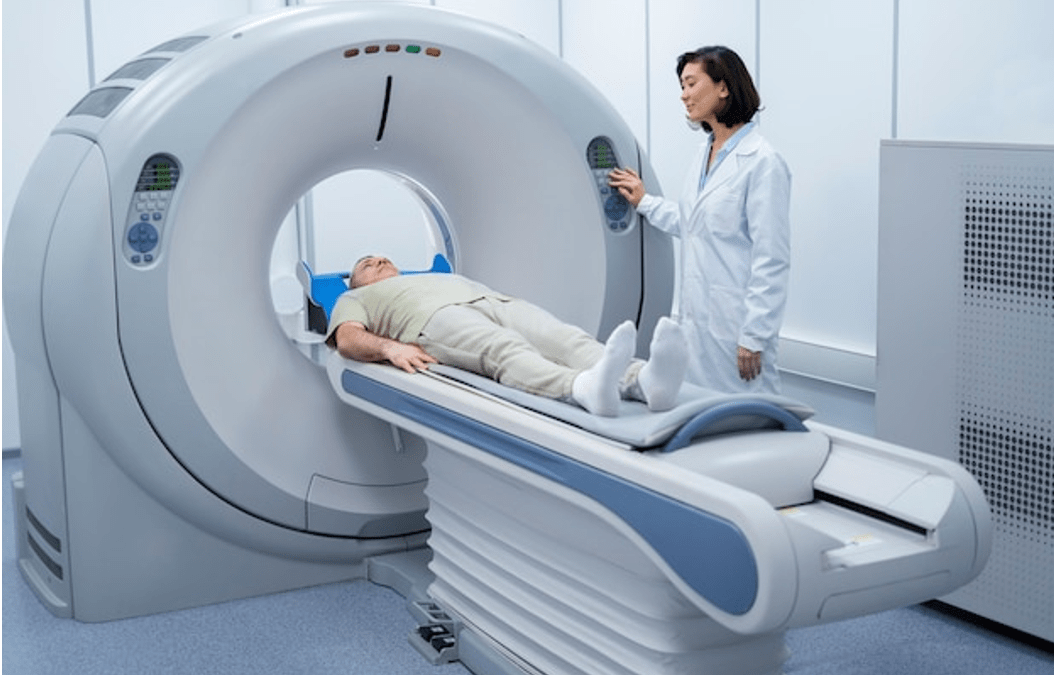Radiation Therapy: Advanced Cancer Treatment
Radiation therapy is a widely used and effective cancer treatment that utilizes high-energy radiation to kill or damage cancer cells. It can shrink tumors, stop the spread of cancer, and be used alone or in combination with surgery, chemotherapy, or other treatments. Healtour Solutions connects you with top radiation oncologists and hospitals in India offering cutting-edge radiation therapy for a variety of cancers.
Types of Radiation Therapy
External Beam Radiation Therapy (EBRT)
- Definition: Uses high-energy beams of radiation delivered from outside the body directly to the tumor site.
- Purpose: Targets specific areas of the body to treat cancers with precision.
Internal Radiation Therapy (Brachytherapy)
- Definition: Involves placing a radioactive source directly inside or near the tumor.
- Purpose: More localized and minimizes damage to surrounding healthy tissue.
Stereotactic Radiation Therapy
- Definition: Uses focused radiation beams from various angles to precisely target tumors.
- Purpose: Often used for small tumors or those in hard-to-reach areas.
Proton Therapy
- Definition: A newer form of radiation therapy that uses protons instead of X-rays to treat cancer.
- Purpose: It offers more precision in targeting tumors, with less damage to surrounding tissues.
Benefits of Radiation Therapy
- Reduces Tumor Size: Shrinks tumors, making them easier to remove or less likely to spread.
- Kills Cancer Cells: Destroys cancer cells and prevents them from growing or spreading.
- Prevents Recurrence: Reduces the likelihood of cancer returning after surgery or chemotherapy.
- Minimizes Side Effects: Focuses radiation on specific tumor areas, reducing impact on healthy tissues.
- Improves Quality of Life: In some cases, it can relieve pain or other symptoms of cancer.
Symptoms of Cancer That May Indicate the Need for Radiation Therapy
Radiation therapy is recommended for cancers showing symptoms such as:
- Unexplained weight loss
- Persistent pain, swelling, or lumps
- Unusual bleeding or discharge
- Difficulty swallowing or breathing
- Severe fatigue and weakness
- Skin changes or discoloration near a tumor site
These symptoms vary by cancer type. A thorough examination by an oncologist is required to determine the need for radiation therapy.
Causes of Cancer That Might Require Radiation Therapy
Radiation therapy is commonly used to treat cancers caused by:
- Genetic Mutations: Inherited or environmental mutations in DNA leading to uncontrolled cell growth.
- Environmental Exposure: Long-term exposure to carcinogens like tobacco smoke, industrial chemicals, or radiation.
- Lifestyle Factors: Poor diet, obesity, physical inactivity, and alcohol use can increase cancer risk.
- Radiation Exposure: Previous exposure to high radiation levels can increase the risk of cancer.
- Age and Family History: The likelihood of developing cancer increases with age and a family history of the disease.
Radiation Therapy Treatment Process
Consultation and Diagnosis
The process begins with a consultation with a radiation oncologist, who will evaluate your medical history, cancer type, and determine if radiation therapy is appropriate.
Treatment Plan
The oncologist will design a personalized radiation treatment plan based on the cancer’s location, stage, and other factors such as overall health.
Radiation Sessions
Radiation therapy is typically administered in multiple sessions over several weeks. It is usually painless, and the length of treatment depends on the type and stage of cancer.
Monitoring
Regular check-ups, imaging scans, and blood tests will be performed to assess the effectiveness of the radiation and manage any side effects.
Post-Treatment Care
After treatment, patients will undergo follow-up visits to monitor recovery, check for cancer recurrence, and manage any lasting side effects.
Radiation Therapy Side Effects
Radiation therapy can cause side effects, which depend on the treatment area, cancer type, and individual response. Common side effects include:
- Fatigue: A common side effect, making patients feel tired and weak.
- Skin Irritation: The skin in the treated area may become red, dry, or irritated.
- Nausea: Some patients experience nausea, especially when radiation is directed to the abdomen or pelvis.
- Hair Loss: Hair may fall out in the treated area, but usually grows back after treatment.
- Swelling: Radiation can cause swelling in the treatment area.
- Loss of Appetite: Radiation can affect the digestive system, leading to a loss of appetite.
Modern radiation therapies and supportive care can manage these side effects, and they typically subside after treatment completion.
Why Choose Healtour Solutions for Radiation Therapy in India?
- Expert Oncologists: Healtour Solutions connects you with top radiation oncologists specializing in the latest radiation therapies.
- Affordable Care: Radiation therapy in India is cost-effective compared to other countries, offering high-quality treatment at a fraction of the price.
- Comprehensive Support: From initial diagnosis to post-treatment care, we support you throughout your radiation therapy journey.
- Advanced Technology: We partner with hospitals equipped with the latest radiation technologies to provide precise and effective treatment.
Step-by-Step Guide to Radiation Therapy
Step 1: Initial Consultation and Diagnosis
Meet with a radiation oncologist to discuss your cancer type and treatment options.
Step 2: Treatment Planning
A personalized radiation therapy plan will be designed to suit your cancer stage and location.
Step 3: Radiation Sessions
Radiation is delivered in several sessions over a course of weeks, targeting the tumor with minimal impact on healthy tissue.
Step 4: Monitoring and Adjustments
Your progress is monitored through imaging tests, with adjustments to the plan if necessary to optimize results.
Step 5: Post-Treatment Care
After radiation, follow-up visits are essential to monitor recovery, manage any side effects, and check for recurrence.
Contact Us for Radiation Therapy
If you or a loved one needs radiation therapy, Healtour Solutions can connect you with the best radiation oncologists and top hospitals in India. Contact us today for personalized care and treatment options.
FAQs About Radiation Therapy
- What is radiation therapy?
Radiation therapy uses high-energy radiation to kill or damage cancer cells, shrinking tumors and preventing cancer spread.
- How long does radiation therapy take?
Treatment typically lasts for several weeks, with sessions usually scheduled a few times per week.
- What are the side effects of radiation therapy?
Side effects include fatigue, skin irritation, hair loss, nausea, and loss of appetite, which can be managed effectively.
- Is radiation therapy painful?
Radiation therapy itself is not painful, but side effects may cause discomfort.
- How effective is radiation therapy?
Radiation therapy can be highly effective in shrinking tumors and preventing cancer spread, improving survival rates in many cases.
- Can radiation therapy cure cancer?
Radiation therapy may cure certain cancers, especially when used early, and can be part of a broader treatment plan to control or manage cancer.
- Is radiation therapy safe?
Yes, radiation therapy is safe when performed by trained radiation oncologists with careful monitoring.
- How much does radiation therapy cost in India?
The cost of radiation therapy in India typically ranges from $2,000 to $10,000, depending on the type of cancer and treatment.
- Can radiation therapy be combined with other treatments?
Yes, radiation therapy is often combined with surgery, chemotherapy, or immunotherapy to improve treatment outcomes.
- What happens after radiation therapy?
After radiation therapy, patients are monitored for recovery, side effects, and recurrence through follow-up appointments.






